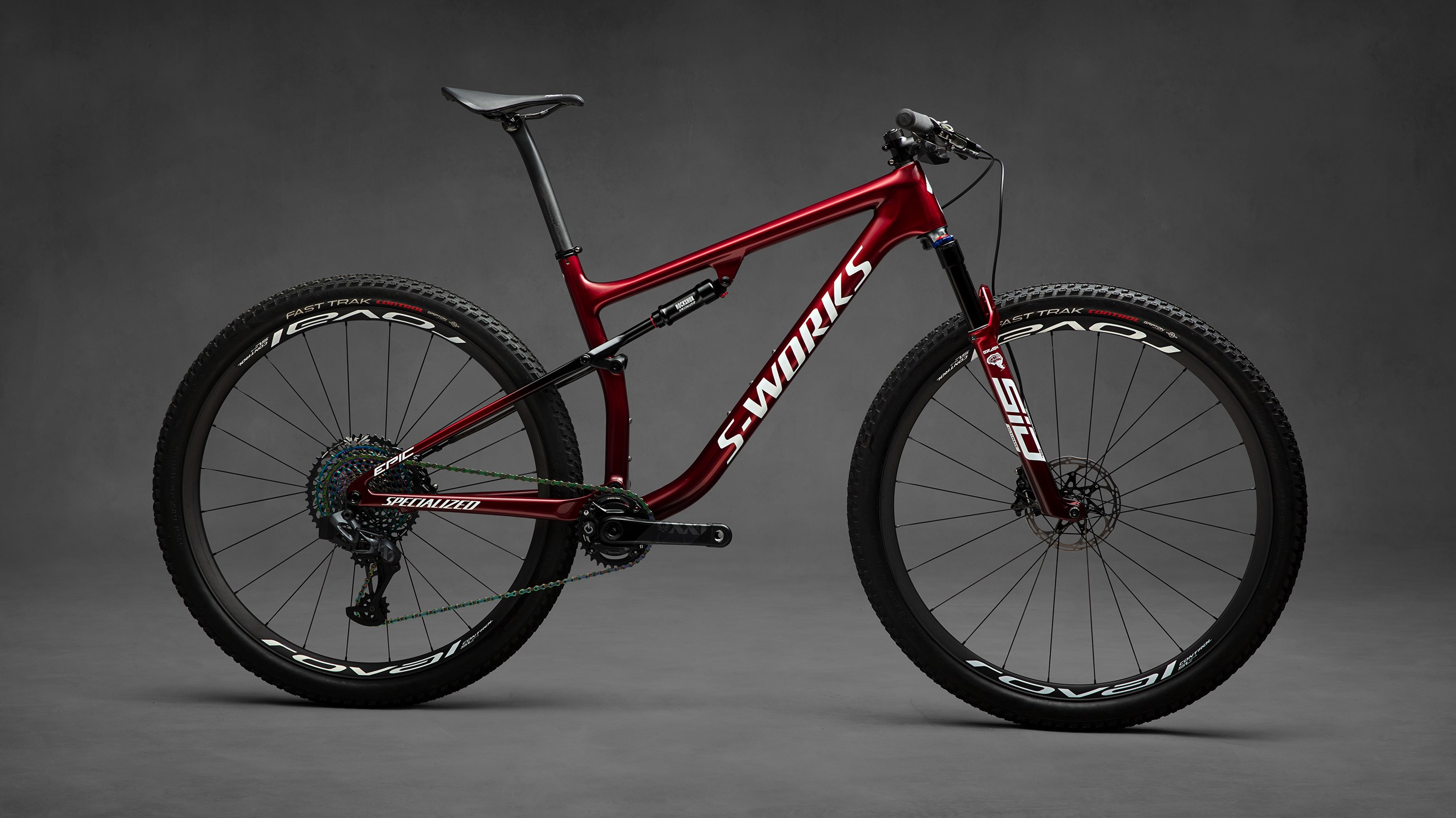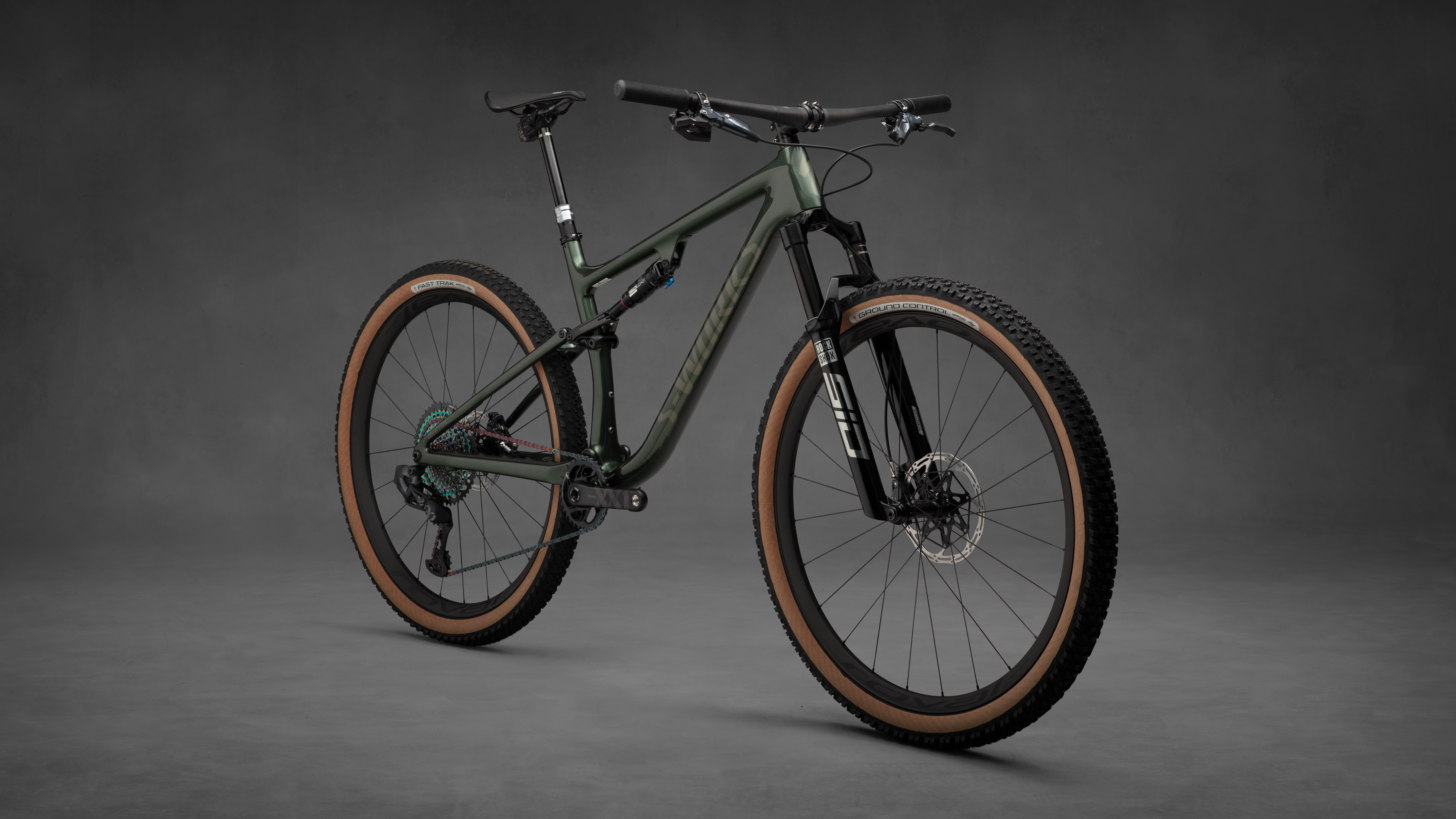All-new Specialized Epic embraces down-country geometry
The new Specialized Epic is lighter, stiffer and longer with an even better Brain suspension system, plus the Evo version gets an update too

Specialized has launched its 2021 model year Epic range and the full-suspension 29er has a completely redesigned frame.
Followers of the Epic model line will notice that it no longer has a gusset brace between the top- and seat tube. The brand’s composite engineers have managed to make the new Epic lighter without sacrificing lateral stiffness.
Rear-tringle rigidity is now 15% better and frame weight has been reduced by 100g on the headline Epic S-Works variants, which use a 12m grade Specialized carbon frame.
Best lightweight mountain bikes under 10kg
Best XC forks 2020: the best cross country forks you can buy today
Best XC and marathon helmets for 2020: how to choose the best XC helmet for you
Riders who opt for the Pro, Expert or Comp derivatives, using the 11m carbon frame configuration, will have their Epic at the weight rating of a 2020 S-Works. All frames accommodate two water bottles, except the size XS, which repositions its second hydration bottle mount under the downtube.
The geometry changes with this new Epic frame design are significant. Specialized have slackened the Epic’s head angle from 69.5 to 67.5 degrees, whilst stretching the bike’s front centre. On a size L, the reach is now 470mm, as opposed to 456mm on the 2020 model year Epic.
The Epic has always found favour with XC racers who require an outstanding pedal platform, yet dislike the added complexity of suspension lockout remotes.
Specialized’s Brain enabled forks and shocks have always done the terrain analysis for riders, knowing when to be firmest during climbs, and react with full travel over technical terrain. The 2021 Epic's Brain system uses superior valving to reduce cavitation and provide smoother transitions between is firm and open states of compression damping.
Specialized has retained its proven 100mm front and rear suspension configuration for the Epic. Those riders who tally huge mileages off-road, all new Epics include a two-year free Brain shock service plan.

Redefining the line between down-country and trail
For those XC riders who want a more descending capable Epic, there is the Evo version, which runs a 120mm fork and 110mm of rear suspension travel.
The Epic Evo foregoes Brain technology but does add a factory-fitted dropper seatpost and features even more daring geometry for those steep descents, with a 66.5-degree head angle. To contextualize exactly how progressive this geometry number is on a Specialized lightweight XC bike, it is slacker than the brand's original 29er Enduro, from 2014.
Both run Epic and Evo roll similar 29 x 2.3” Fast Track tyres, although the Evo can fit a 2.4” in the front. Weight ratings for these new Epics go down to 20.5lb, for the S-Works build kits.
Specialized is pricing Epic S-Works at $11,524 and this specification includes wide profile 29mm ID Roval Control SL rims, a SID Ultimate SL Brain fork, SRAM XX1 Eagle AXS drivetrain and a Quarq power meter crankset. More affordable Pro ($7,925) and Expert $5,925) grades are also available.
The Evos list a broadly similar specification to their Epic range equivalents, without the Brain suspension bits and Quarq power meter. It is equipped with more powerful SRAM G2 Ultimate 4-piston brakes, as opposed to the Epic’s SRAM Level TL 2-piston stoppers. Also includes is Rockshox AXS Reverb dropper seatpost, with between 100- and 150mm of stroke, depending on frame size.
Specialized is marketing the Epic Evo S-Works frame at $5,025. There are also Pro ($8,250) and Expert ($5,925) variants.

Lance Branquinho is a Namibian-born journalist who graduated to mountain biking after injuries curtailed his trail running. He has a weakness for British steel hardtails, especially those which only run a single gear. As well as Bike Perfect, Lance has written for MBR.com, Off-Road.cc and Cycling News.
